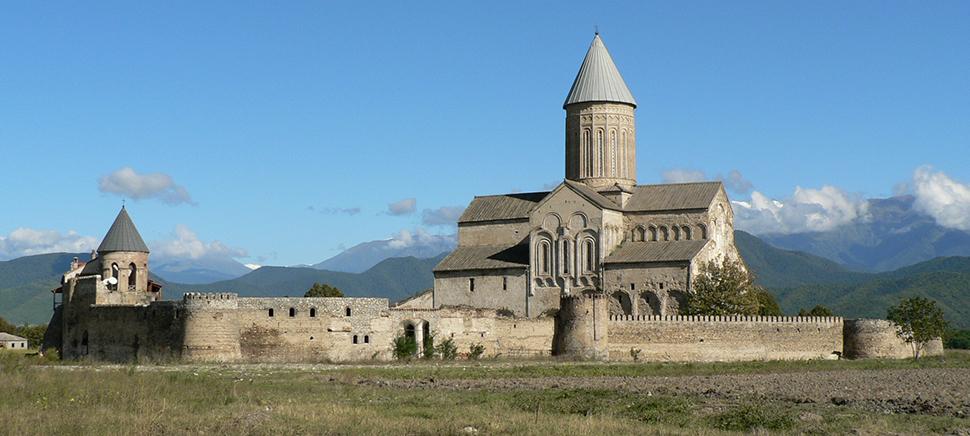
Telavi (Georgian: თელავი) is the main city and administrative center of Georgia's eastern province of Kakheti. Its population consists of some 21,800 inhabitants (as of the year 2002). The city is located on foot-hills ofTsiv-Gombori Range at 500–800 meters above the sea level. The first archaeological findings from Telavi date back to the Bronze Age. One of the earliest surviving accounts of Telavi is from the 2nd century AD, by Greek geographer Claudius Ptolemaeus, who mentions the name Teleda (a reference to Telavi). Telavi began to transform into a fairly important and large political and administrative center in the 8th century AD. Interesting information on Telavi is provided in the records by an Arab geographer, Al-Muqaddasi of the 10th century, who mentions Telavi along with such important cities of that time's Caucasus asTbilisi, Shamkhor, Ganja, Shemakha and Shirvan. Speaking about the population of Telavi, Al-Muqaddasi points out that for the most part it consisted of Christians.
From the 10th until the 12th century AD, Telavi served as the capital of theKingdom of Kakheti and later Kingdom of Kakhet-Hereti. During the so-called Golden Era of the Georgian State (12th-13th centuries), Telavi turned into one of the most important political and economic centers of the Georgian State. After the disintegration of the united Georgian Kingdom in the 15th century, the role of Telavi started to decline and the city eventually became an ordinary town of trade and crafts. Telavi re-gained its political importance in the 17th century when it became a capital of the kingdom of Kakheti. By 1762, it turned into the second capital (after Tbilisi) of the unitedEastern Georgian Kingdom of Kartl-Kakheti. The reign of King Erekle II, who was born and died in this city, was a special epoch in the history of Telavi. During this period (1744–1798) it grew into a strategic and cultural centre. Erakle II established there atheological seminary and founded a theatre. Erekle II's reforms touched upon all aspects of life in the country. They changed fundamentally the political, economical and cultural orientation of Kartli-Kakheti and, subsequently of the whole Georgia. His name became a symbol of freedom and national independence of the Georgian people. Erakle II is still called affectionately "Patara Kakhi" (Little Kakhetian), and his heroic deeds are described in folk literature.


